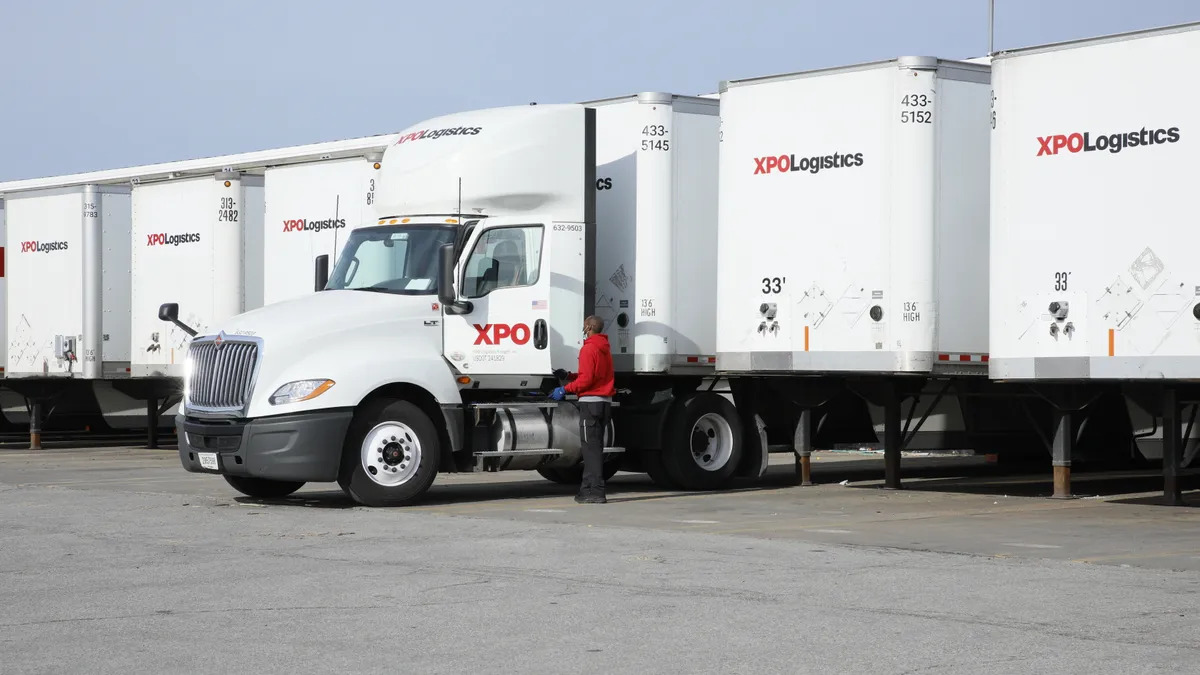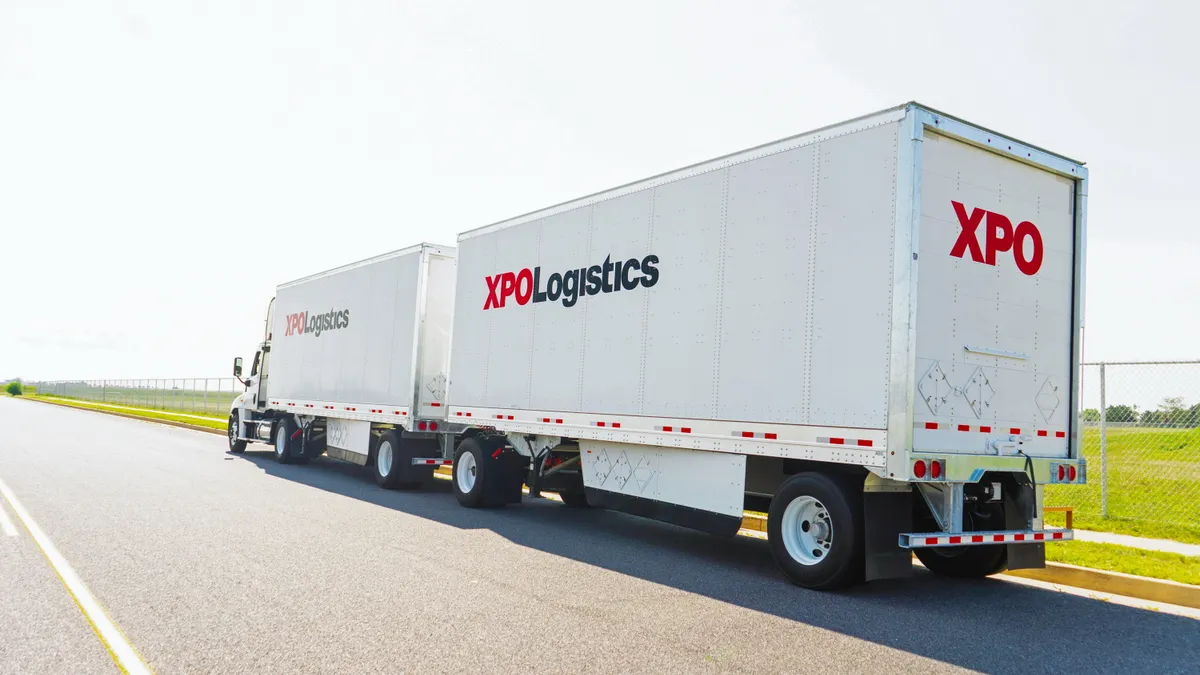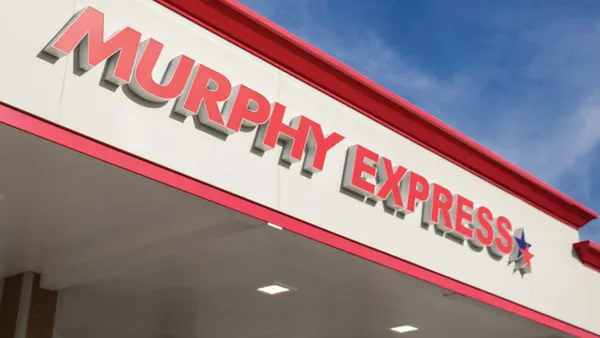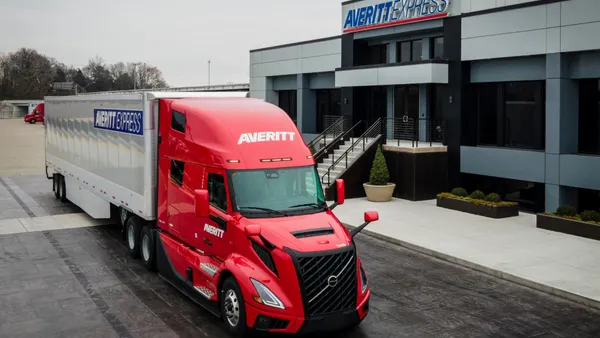Before XPO Logistics sliced into two units — XPO and GXO — the LTL and logistics company was enjoying strong growth, more than a year after postponing any widescale company changes because of the COVID-19 pandemic.
What was once a vast North American field of uncertainty is now a mass of online and in-person consumers and businesses coming back to market, making perhaps unprecedented demands on the LTL and logistics sectors.
"The pricing environment is very healthy," said Matt Fassler, XPO chief strategy officer. "The investor economy is beginning to recover."
And just like that, in a little over a year, XPO CEO and Chairman Bradley Jacobs continues his uncanny winning streak, a record stretched over at least four distinct economic sectors.
Bradley Jacobs, the numbers man
Jacobs is a relentless numbers man and a serial entrepreneur, with considerable success in the investment world. After dropping out of Bennington College and Brown University, he dabbled in oil brokerage, moving on to start saplings of what would grow to become massive U.S. waste-management and industrial-rental companies.
Jacobs moved on from those efforts a wealthier man who could often attract investors and equity.
Then Jacobs decided to get involved in trucking and logistics, perhaps his biggest challenge yet. An industry where fuel prices, unions, environmental regulations, massive distances, bad weather, broken engines, busted tires and sometimes finicky consumers rule, trucking has bankrupted more than a few rich and experienced players.

Jacobs was not deterred by the cyclical ups-and-downs. He told investors in 2011 that after he left United Rentals in 2007, he started looking for a new industry.
"I studied a lot of different industries, and I ended up concentrating on transportation and logistics," Jacobs said in 2011. "It’s larger and more fragmented than the industries I’ve been involved with in the past. It [was] more than $3 trillion worldwide."
Jacobs said he first looked at an "asset-heavy trucking company roll-up, but I couldn’t figure out a way to create the kind of shareholder value I was looking for. I wanted a higher return on capital."
Then Jacobs discovered two companies that became case studies for him: C.H. Robinson and Expeditors International of Washington. C.H. Robinson was the leader in truck brokerage, and Expeditors was the largest U.S.-based freight forwarder, Jacobs said.
"I started looking very intently at brokers, and I liked what I saw."

Bradley Jacobs
CEO of XPO Logistics
"I love these two companies," Jacobs said. "They’re both non-asset based, which is a business model I understand because of my oil brokerage days. They have no debt to speak of. They throw off free cash flow in all parts of the economic cycle. Their returns on capital are 20% to 30%. So I started looking very intently at brokers, and I liked what I saw."
He bought a new base of operations, a Michigan logistics company, Express-1 Expedited Solutions. It had the stock ticker, "XPO." He named the company XPO Logistics, and soon Jacobs was off, absorbing 17 companies from 2012 to 2015, culminating in the $3 billion acquisition of Con-way.
Immediately with Con-way, XPO jumped into the No. 2 slot of North America's biggest LTL companies. But as the years went on, XPO became subject to what Credit-Suisse analyst Allison Landry called "the conglomerate discount." The company's stock price did not reflect what Jacobs felt was its true worth, partly because there was more than just LTL for the stock market to parse.
XPO is an international company, with a sizable contract logistics business in Europe. That set XPO apart from its main LTL competitors in North America: Old Dominion, Yellow, Estes Express Lines and Saia. (Its other LTL competitor, FedEx Freight, is mainly not an LTL company.)
Jacobs could not quite figure out the psychology behind a conglomerate discount. That also meant further LTL or logistics acquisitions were useless until he dealt with the issue.
So, Jacobs employed another strength: tactician. If the "pure-play LTL valuation" he sought would not materialize, he would eliminate the psychology behind it, by splitting XPO's North American LTL and brokerage business away from the Europe-based contract logistics business, which has substantial North American business too.
XPO trades below its LTL counterparts
On Jan. 15, 2020, Jacobs laid out his reasoning as to why XPO would seek a strategy that would ultimately lead to the GXO spinoff:
"XPO is the seventh-best-performing stock of the last decade on the Fortune 500, based on Bloomberg market data. The share price has increased more than tenfold since our investment in 2011. Still, we continue to trade at well below the sum of our parts and at a significant discount to our pure-play peers. That's why we believe the best way to continue to maximize shareholder value is to explore our options, while remaining intensely committed to the satisfaction of our customers and employees."
At that time, Jacobs did not reveal what exactly the strategy would be. And before he could, the pandemic arrived. Jacobs and the XPO board announced on March 20, 2020, that, in light of the pandemic, XPO would abandon the spinoff talks.
It didn't take long before North American consumers, stuck at home, began ordering goods online in greater numbers than the ordinary e-commerce economy was used to. Inventories started to get picked off. Shippers made calls for more. By the late summer of 2020, the trucking industry was rebounding big time, shooting skyward along with the logistics and warehouse industries.
In December, XPO finally said it would split into two companies. The company's North American logistics and LTL arms would remain as XPO, and the Europe-based contract logistics arm would become GXO.
Satish Jindel, president of SJ Consulting Group, said he believes Jacobs' plan will pay off, and Wall Street will better figure out how to assess the slimmed-down XPO and its GXO stock sibling. Jindel said the acquisitions clouded the picture for Wall Street.
"[Jacobs] acquired a lot of companies and created a lot of synergies," said Jindel. "The market did not fully appreciate all of the units combined."
XPO and GXO officials agree. A GXO spokesperson said splitting the companies will provide a clearer picture for investors.
LTL goes up and to the right
Jason Seidl, Cowen managing director for industrials, airfreight and surface transportation, said LTL and supply-chain providers are doing well. Brokers are telling Cowen that some LTL entities are declining new customers because they are so stretched thin.
That puts carriers, especially companies like XPO that have their beaks in warehousing and logistics, too, in a great position.
"The whole supply chain, if you're a shipper, it's a terrible time," said Seidl. "Prices are going up and to the right."
Landry agreed.
"Supply chains are completely a mess," said Landry. "This persists at least through the end of this year."
Fassler said e-commerce is outpacing general consumer growth, and LTL business is becoming more centered around e-commerce. XPO's engines were revving in terms of revenue, even before the split.
XPO continues to raise earnings guidance
Landry said she likes the position that XPO is in because of the consumer and shipper demands. XPO has signed on another $4 billion in new contracts, she said, but not all of that comes in 2022, as clients plan long. For XPO, she said, agreeing with other analysts, the general LTL and logistics environment means "up and to the right."
Despite this boom, Jacobs believed being a contract logistics firm and a carrier meant both units create some haze in stock analysis.
Jacobs has come to believe that for a stock to shine, the business has to be "pure play," a term he uses a lot about XPO and GXO. For XPO, that basically means LTL. For GXO, that means contract logistics. The new companies will guide Wall Street to value them without the haze, without what Jacobs has called "the conglomerate discount."
A leaner, tech-savvy XPO
In 2022 and 2023, XPO may be leaner — but it likely won't be smaller. E-commerce will require more drivers, more workers in service centers and warehouses, and more robots and cobots helping them.
XPO will have to respond to the growth. Fassler said XPO has 48 active classes or training schools for North American drivers, and it expects to triple driver graduates from its schools this year.
And responding to the growth means more assistance from non-humans. Cowen said part of the XPO story isn't just Jacobs' focus on numbers, from operating ratios to fuel costs. Jacobs came in and soon realized XPO needed better technology to be a world-class logistics company.
"XPO focused on having best-in-class technology," said Seidl. "Con-way was always considered tops, but low on technology. Old Dominion was ahead of them."
A GXO spokesperson said Jacobs usually looked at equipment and technology when he entered a new industry. But even some transport observers seemed surprised at how much advanced robotics and other tech XPO began implementing. Jacobs wasn't content with merely the best software. XPO began to develop robots and "cobots," a collaborative robot that can interact with humans and help with tasks.
"It's the only company I have ever followed that uses robotics," said Seidl. "This isn't your mother's or your father's technology company."
Fassler said clients are increasingly coming to XPO with technology requests, looking to speed the process of sorting and picking using the robots and cobots.
After the split, XPO will retain XPO Connect, the digital TMS, a GXO spokesperson said. And Mario Harik, XPO's CIO, will remain, too.
"This isn't your mother's or your father's technology company."

Jason Seidl
Managing Director for Industrials, Airfreight and Surface Transportation at Cowen
But there is one thing XPO and GXO cannot replicate with robotics: Jacobs.
Jindel said he believes history could be a pattern, and Jacobs, mainly an investor at heart, could move on to more adventures in business, leaving a third and fourth company stronger than when he started.
XPO denied Jacobs is leaving and noted he will also serve as GXO chairman.
But if Jacobs does leave eventually, he will perhaps bring along with him some luck, helping to grow a new business sapling.
Jindel, however, said he does not believe Jacobs is lucky.
"Luck is always welcome, but he is a very astute investor," Jindel said of Jacobs. "I will be looking to invest with him again."










